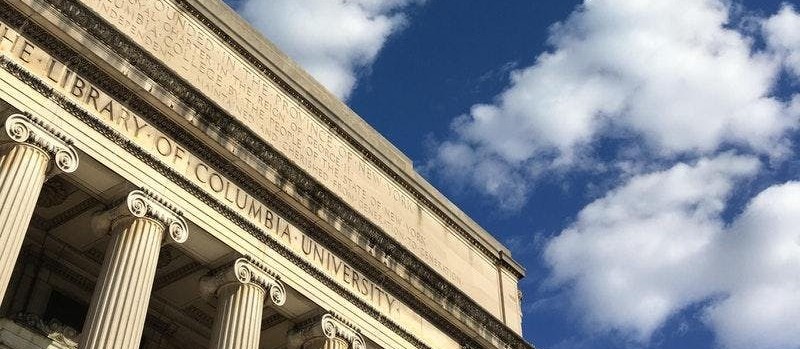Bridge to the Ph.D. Program 10th Anniversary Symposium
In collaboration with
the Columbia University School of Professional Studies
and
the Office of the Vice Provost for Faculty Diversity and Inclusion,
the Bridge to the Ph.D. Program in the Natural Sciences 10th Anniversary Research Symposium was held in the Schapiro Center for Engineering and Physical Science Research (CEPSR) on May 31 and June 1, 2019.
The symposium featured the research of current and previous Bridge to the Ph.D. Program scholars.
Presenting Alumni
Brian Colar (Cohort 3) received a B.A. in psychology from Argosy University in 2010. As a Bridge to the Ph.D. Program scholar, he worked with Valerie Purdie-Vaughn in the Department of Psychology and examined the relationship between race and self-affirmation in the political support of President Barack Obama. In addition to this study, he examined the correlation between race and masculinity and their affiliation to stereotype threat. In 2008, Brian founded Reflection Eternal, NFP, a Chicago-based nonprofit organization that works with at-risk youths to bridge educational gaps and assist with the transition to adulthood for minority males. Currently, Brian is a student in the Department of Urban Education and Policy of the University of Illinois at Chicago.
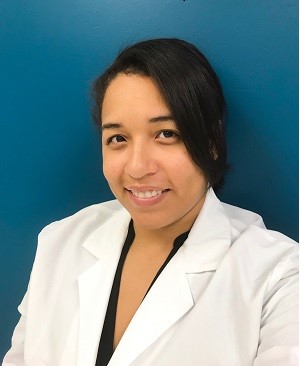
Raven Diacou (Cohort 3) received a B.S. in biology from Haverford College in 2010. While at Haverford, she completed a senior thesis with Andrea Morris on axon guidance in the developing visual system. In 2009, as part of Columbia University's Graduate School of Arts & Sciences Summer Research Program, Raven furthered her interests in axon guidance by working with Carol Mason. In 2010, Raven returned to the laboratory of Carol Mason as a Bridge to the Ph.D. Program scholar. Raven is currently a sixth year M.D./Ph.D. candidate in the laboratory of Wei Liu at Albert Einstein College of Medicine. This summer, she will defend her doctoral thesis, which elucidates the genetics of retinal development, and apply to residency programs in ophthalmology. She plans to continue her long-standing interest in vision research by investigating the molecular mechanisms of eye disease as a physician-scientist.
Carina Fish (Cohort 7) received a B.A. with concentrations in earth and planetary sciences and environmental sciences and engineering from Harvard College in 2013. As a Bridge to the Ph.D. Program scholar, Carina worked with Bärbel Hönisch at the Lamont-Doherty Earth Observatory (LDEO). Her work at the LDEO focused on supplementing previous boron isotope-pH proxy studies on sediments of a Caribbean core top by analyzing them for their trace metals and oxygen isotopic composition. Carina has co-authored three papers, one in paleoceanography from her work at LDEO, and two on soft robotics with George Whitesides’s research group at Harvard College. Carina currently is a Ford Foundation Predoctoral Fellow and a geology doctoral student in the biogeochemistry laboratory group of Tessa Hill at the University of California, Davis. She is investigating deep-sea corals and the stories they hold of modern and past oceanographic change. As an advocate for environmental justice, Carina is passionate about science communication. Her first scicomm endeavor, creating a soft robotics outreach video, garnered over 30,000 views on YouTube. Carina placed in a 2017 university-wide scicomm competition, and went on to give an invited talk to members of the California State Legislature. She admires the work of Robert Bullard, the father of environmental justice, and aspires to have a career like that of Jane Lubchenco. When not at sea or in the laboratory, Carina can be found dancing the Lindy hop in Golden Gate Park.
Carlos Garcia (Cohort 4) received a B.S. in biotechnology with a minor in organic chemistry from Kean University in 2011. While at Kean, he participated in the NSF REU and McNair Scholars programs. His interest in biomedical sciences was sparked during his REU experience in the laboratory of Walter Chazin at Vanderbilt University. As a Bridge to the Ph.D. Program scholar, Carlos worked in the laboratory of John Hunt in the Department of Biological Sciences and investigated the structural and thermodynamic mechanisms by which proteins perform mechanical activities on a molecular scale. More specifically, he characterized the protein cystic fibrosis transmembrane conductance regulator, whose gene mutations have been associated with cystic fibrosis. Carlos is currently a fourth year graduate student in the Department of Oral Biology at Rutgers University. In the laboratory of Daniel Kadouri, he is exploring the potential use of predatory bacteria as a strategy to eliminate the threat of multidrug resistant bacteria, which requires a detailed understanding of predatory biology and the mechanisms that might impact prey resistance.
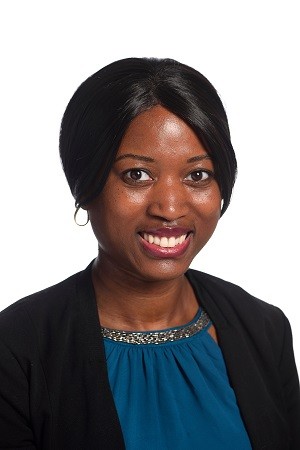
Shaness Grenald (Cohort 2) received a B.S. in psychology from St. John’s University in 2009. As a Bridge to the Ph.D. Program scholar, she worked in the laboratory of Frances Champagne in the Department of Psychology. In 2016, Shaness received a Ph.D. in medical pharmacology from the University of Arizona. There, her doctoral dissertation investigated whether dual-targeting of the opioid and cannabinoid receptor systems would produce synergistic antinociception in preclinical models of acute and chronic pain. Findings from this work will be used as a means of tackling the current opioid crisis. Now, Shaness is a postdoctoral fellow in the Departments of Anesthesiology & Critical Care Medicine and Behavioral Sciences at Johns Hopkins University. Her current research interests involve characterizing the peripheral role of opioids and cannabinoids in rodent models of pain. Specifically, she is evaluating the interaction between these agents in a model of neuropathic pain, with the ultimate goal of enhancing analgesia and reducing the side effect profile. In regards to her long-term objectives, Shaness is interested in applying her knowledge of pharmacology to bridge the gap in the pain field by developing novel therapeutics for the clinical population.
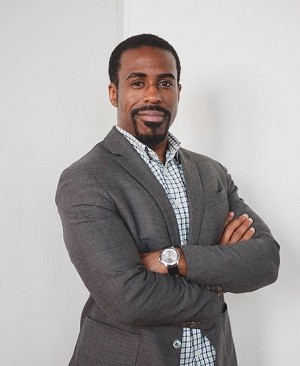
Nicholas Hunt-Walker (Cohort 2) found his way into the sciences by attending Queensborough Community College and later receiving a B.S. in physics and mathematics at York College (CUNY). As a Bridge to the Ph.D. Program scholar, he worked with Jules Halpern in the Department of Astronomy and studied gamma-ray pulsars by using Fermi Gamma-Ray Space Telescope data. In 2010, Nicholas moved to Seattle and entered the Ph.D. program in astronomy at the University of Washington. Throughout his graduate studies, his research interests focused on the life and death of stars. In 2016, Nicholas joined Code Fellows, a Seattle-area coding school, and eventually became a lead instructor of its 20-week software development program. During his two years at Code Fellows, he helped over 100 students navigate the growing Seattle technology scene. In March 2018, he joined Starbucks Corporation as an application developer on its Emerging Technologies team. At Starbucks, he provides proofs of concept for new and interesting technical ideas for the company to explore. When he is not writing code for Starbucks, Nicholas enjoys building hobby programming projects; being a part of the Puget Sound Programming Python user group; practicing the Brazilian martial art of Capoeira, which he learned as a Bridge scholar; and watching his 11 month-old son learn and grow.
Charlotte Logan (Cohort 1) received a B.S. in biochemistry from the University of Oklahoma. As a Bridge to the Ph.D. Program scholar, she worked in the laboratory of James Manley in the Department of Biological Sciences and studied how gene expression is controlled on a molecular level by mRNA transcript processing. After investigating the role of alternative splicing of the mRNA transcripts in difficult-to-treat asthma, Charlotte then studied the factors involved in polyadenylation of mRNA transcripts. Charlotte is from the Akwesasne Mohawk Nation, which spans the borders of Quebec, Ontario, and New York State, and is dedicated to alleviating the health disparities between Native and mainstream communities. In 2012, Charlotte received an M.S. in molecular and cellular biology from Brandeis University. She is now a senior research support specialist in the Department of Biochemistry and Molecular Biology of the State University of New York Upstate Medical University.
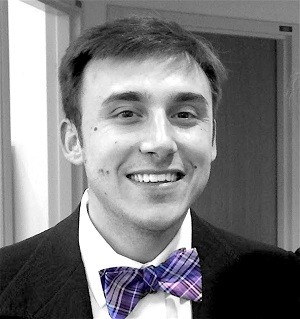
Richard Lopez (Cohort 2) received a B.A. in psychology from Princeton University in 2009. As a Bridge to the Ph.D. Program scholar, Rich worked under the mentorship of Kevin Ochsner in the Department of Psychology. In 2017, he received a Ph.D. in cognitive neuroscience from Dartmouth, where he studied brain-behavior relationships as they relate to self-regulation of eating. Broadly, Rich is interested in linking appetitive and affective processes to health outcomes and health risk behaviors within and across populations. Currently, he is a postdoctoral fellow in the Translational Social Cognitive and Affective Neuroscience Laboratory at Rice University. Outside of his research interests, Rich enjoys watching films, running, hiking, and nerding out about metaphysics, statistics, meteorology, or any combination thereof.
Christopher Medina-Kirchner (Cohort 8), a native of Milwaukee, Wisconsin, graduated from the University of Wisconsin-Milwaukee in 2014 with a B.A. in psychology. As an undergraduate, he was a McNair scholar and conducted research in Krista Lisdahl’s laboratory in the Department of Psychology, as well as with the Milwaukee County Drug Treatment Court evaluation team. Through this work, Christopher began to notice how misinformation about the neuropsychopharmacological effects of drugs has contributed to high incarceration rates. This inspired him to gain a more thorough understanding of the neurobiological and environmental factors that determine responses to drug effects. As a Bridge to the Ph.D. Program scholar, Christopher worked with Carl Hart to understand factors that mediate drug self-administration behavior and with Geraldine Downey to develop a rejection-sensitivity model of coping with the stigma of a criminal record. He received a Beyond the Bars fellowship, which affords him an opportunity to participate in research projects aimed at increasing our understanding of mass incarceration and factors that will reverse this situation. Christopher aspires to become a neuropsychopharmacologist who investigates the effects of psychoactive substances in human research patients while taking into consideration environmental and social factors. He started in the Ph.D. program in psychology at Columbia in the fall of 2017.
Steven Mohammed (Cohort 4) is originally from New York City. As an undergraduate at Colgate University, Steven worked with Jeff Bary studying angular momentum transport in TW Hya, a T Tauri star, via its accretion and outflow processes. In the summer of 2009, he researched the formation of brown dwarfs using Hubble Space Telescope images with Kim McLeod at Wellesley College, and helped discover a planetesimal orbiting a brown dwarf. Steven earned a B.A. in astronomy-physics in 2011. As a Bridge to the Ph.D. Program scholar, Steven worked with David Schiminovich in the Department of Astronomy to assemble a catalog from various surveys of nearby massive galaxies to examine their gas content and compare them to galaxies in the Galaxy Arecibo Sky Survey. Steven stayed in the Department of Astronomy to pursue a Ph.D.; he is now a fifth-year graduate student.
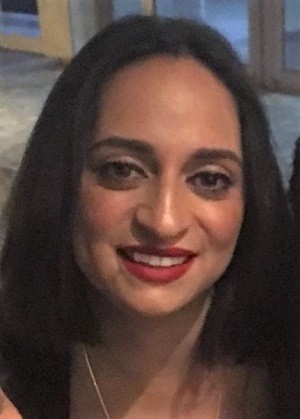
Claribel Nuñez (Cohort 3) is a New York City native and received a B.S. in chemistry from Brooklyn College (CUNY) in 2010. There, she was a Minority Access to Research and Career (MARC) scholar and worked with Maria Contel on synthesizing gold-iminophosphine complexes to improve cancer therapies. As a Bridge to the Ph.D. Program scholar, Claribel worked in the laboratory of Ann McDermott in the Department of Chemistry and studied the interactions of cytochrome P450, an enzyme that catalyzes the oxidation of organic substances. In 2013, Claribel began her doctoral studies in chemistry at the University of Florida, under the guidance of Nichole Horenstein. Her current research focuses on the biosynthesis, identification, and characterization of nitrogen-containing sugars from bacteria.
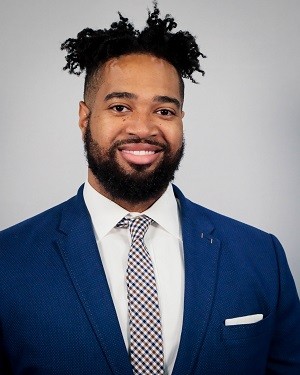
John Pamplin II (Cohort 3) is a Ph.D. candidate in the Department of Epidemiology at Columbia University’s Mailman School of Public Health, where he is supported by a National Institute of Mental Health-funded training grant in Psychiatric Epidemiology. Originally from Yellow Springs, Ohio, John received a B.S. in biology from Morehouse College in 2010. As a Bridge to the Ph.D. Program scholar, he worked with Rae Silver in the Department of Psychology and studied circadian rhythms and neuro-endocrine signaling in rodent models. After completing the Bridge Program, John matriculated into the Mailman School of Public Health to pursue an M.P.H. in epidemiology and certification in social determinants of health. John remained at Columbia University to begin his doctoral studies, which lie at the intersection of social epidemiology and psychiatric epidemiology. More specifically, he is interested in the mental health consequences of societal structures in the U.S., with a primary focus on the relationship between structural racism and mental health among people of color. John’s studies investigate the methodological concerns regarding the measure of racism, psychosocial predictors of poor health, and investigating black-white differences in rates of psychosis in the U.S.
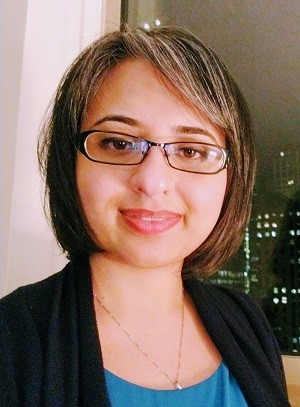
Khatera Rahmani (Cohort 2) received a B.S. in biology and environmental studies from Brooklyn College (CUNY) in 2009. As a Bridge to the Ph.D. Program scholar, she worked with J. Chloë Bulinski in the Department of Biological Sciences. In 2017, Khatera received a Ph.D. in toxicology from the University of Rochester. Khatera is currently employed as a senior regulatory affairs specialist and toxicologist at Conagra Brands in Chicago. In her current role, Khatera is a part of Conagra Brands’ food protection and regulatory team, where she provides toxicologic risk assessments and guidance on chemical contaminants in food. Khatera is also actively involved in reviewing the safety of new ingredients, implementing mitigation strategies, and monitoring for chemical hazards in packaged food products.
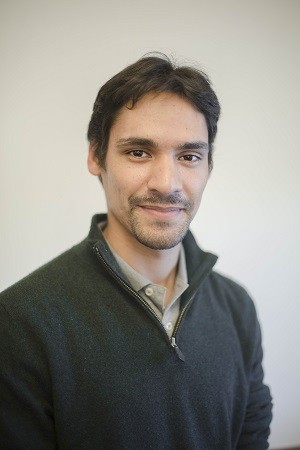
Deivid Ribeiro (Cohort 7) grew up in Cape Cod, Massachusetts and attended the University of Massachusetts at Dartmouth before transferring to Brown University to complete a B.S. in physics. As a Bridge to the Ph.D. Program scholar, Deivid worked in the laboratory of Brian Humensky in the Department of Physics. Deivid remained at Columbia and is now a second year Ph.D. candidate in the Department of Physics. Deivid has worked on the optical alignment system of a prototype gamma-ray telescope, featuring the novel Schwarzschild-Couder optical design, which is a candidate instrument for the Cherenkov Telescope Array Observatory. Additionally, he is currently working on analysis techniques with the Very Energetic Radiation Imaging Telescope Array System in Arizona, with hopes of detecting gamma-ray bursts in real time to understand their high-energy properties.
Elizabeth Rodriguez (Cohort 1) earned a Ph.D. in neuroscience from the University of Michigan in winter 2017. In graduate school, Elizabeth worked under the guidance of Israel Liberzon. Using single-prolonged stress (SPS) as a model of post-traumatic stress disorder (PTSD), she aimed to elucidate the neuro-mechanisms underlying the symptomology for this and other psychiatric disorder to develop more effective treatments. Specifically, for her thesis, she used the SPS model of PTSD to examine potential cellular mechanisms that could contribute to contextual processing deficits, and subsequently to deficient fear extinction retention in this disorder. As a Bridge to the Ph.D. Program scholar, she worked with Rae Silver in the Department of Psychology. One of her projects assessed suprachiasmatic nucleus activation by a light-pulse when mice were aroused during their normal resting time. She also mapped distribution of neuro-immune mast cells during brain development in baseline conditions. Elizabeth graduated from Hunter College (CUNY), with a B.A. in psychology. While at Hunter, she was a MARC and then a Minority Biomedical Research Support (MBRS) scholar. Under the sponsorship of these programs, she worked in Cheryl Harding's neuro-endocrinology laboratory studying song-learning and sexually dimorphic behaviors in zebra finches. She hopes to continue her career as a neuroscientist while expanding her efforts in different outreach initiatives.
Nitza Santiago-Figueroa (Cohort 1) is originally from Patillas, Puerto Rico, and earned a B.S. in physics and electronics from the University of Puerto Rico, Humacao (UPRH). As an undergraduate, Nitza conducted research at UPRH with Juan Cersosimo studying the galactic warp of the Milky Way and at Yale University with Héctor Arce examining stars in the background of a star-forming molecular cloud. As a Bridge to the Ph.D. scholar, she worked with Mary Putman in the Department of Astronomy studying the HI gas properties of star formation in isolated HII regions. In the fall of 2010, Nitza entered the Fisk-Vanderbilt Masters-to-Ph.D. Bridge Program to start a M.S. in physics. She is now a graduate student in the Ph.D. program in the Department of Energy and Environmental Systems (concentrating in atmospheric science) at North Carolina A&T State University.
Rhondale (Ron) Tso (Cohort 6) was born and raised in Arizona and received a B.S. in physics from Embry-Riddle Aeronautical University in 2012. As an undergraduate, Ron’s interests focused on space-based tests of relativity, and his undergraduate thesis employed error-estimation techniques in gravitational-wave astrophysics. In the summers of 2010 and 2011, he conducted research with the relativity group at the University of Chicago and in mathematical physics at the Center for Spacetime Symmetries at Indiana University, Bloomington. Ron was then employed in public education for a year and spent some time with a palaeontology excavation crew in Montana before becoming a Bridge to the Ph.D. Program scholar. As a Bridge to the Ph.D. scholar, he worked with Janna Levin in the Department of Physics and investigated aspects of relativity. In 2015, he began his graduate studies in physics at the California Institute of Technology with support from the NSF Graduate Research Fellowship, the Ford Foundation Predoctoral Fellowship, and the Gates Foundation. In 2017, thanks to a Kavli Student Fellowship, Ron studied relativity, gravitational waves, and astrophysics at Niels Bohr Institute in Copenhagen, Denmark. Outside of his research interests, Ron has done extensive outreach with Native American communities.
